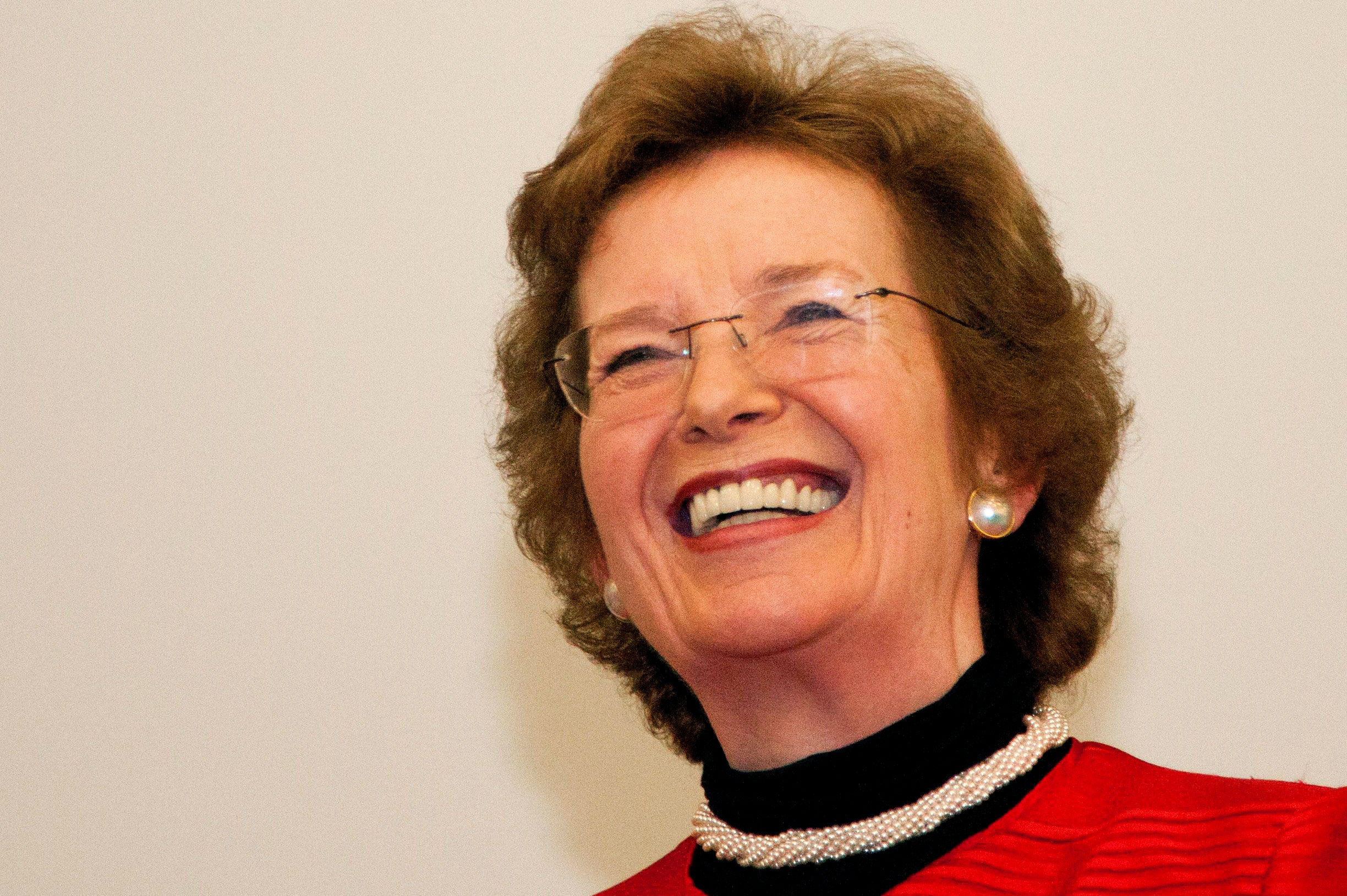Mary Robinson spoke at a special event to honour the life of Africa’s first environmental and female Nobel Peace Laureate, Wangari Maathai.
Mary Robinson spoke at a special event on March 27 to honour the life of Africa’s first environmental and female Nobel Peace Laureate, Wangari Maathai. Giving the inaugural Wangari Maathai Lecture in Royal Botanic Gardens in Kew, London, Mrs. Robinson spoke about how the late professor inspired her and many others “because of her personal courage and commitment, and her practical way of doing.”
Mrs. Robinson’s speech was part of a day of celebrations to recognise the good work of Professor Maathai, which included HRH the Prince of Wales planting an oak tree in Kew Gardens. The event was organised by The Green Belt Movement (GBM)’s Europe office, which Professor Maathai founded.
GBM is an environmental organisation that empowers communities, particularly women, to conserve the environment and improve livelihoods. Since its inception in Kenya in 1977, GBM has planted more than 51 million trees.
During the Wangari Maathai Lecture, Mrs Robinson spoke of the influence the Kenyan had on her work in Climate Justice, and the eventual establishment of the Mary Robinson Foundation – Climate Justice:
“When I became aware, through work I was doing with colleagues in various African countries on rights to health and decent work, issues of women, peace and security and corporate responsibility, that there was a huge injustice being brought about by climate change, I was deeply influenced by Wangari.
“I came to the issue of climate change not as a scientist or environmentalist, but from a human rights and justice perspective. I realised that severe weather shocks were already undermining poor livelihoods in vulnerable countries, and were negatively affecting rights to food, safe water, and health. I concluded that this posed one of the greatest human rights threats, had a huge injustice dimension, and needed to be highlighted by taking a climate justice approach.
“To me a climate justice approach had to be a values-led, people-centred approach, which highlighted the injustice of climate change but which had to be practical about solutions – as Wangari had been.”
Among the other activities which took place to commemorate Professor Maathai was an exhibition of the work of GBM in the Nash Conservatory of the Botanic Gardens, attended by, among others, her daughter Wanjira. There was also an enactment of Professor Maathai’s favourite story ‘The Hummingbird’ by pupils of the local Stoneygate College, and Kikuyu and Swahili songs from the Revival House Choir.
Among the many honours she was awarded during her life, Professor Maathai received the Nobel Peace Prize in 2004, and In recognition of her deep commitment to the environment, the United Nations (UN) Secretary-General named Professor Maathai a UN Messenger of Peace in December 2009, with a focus on the environment and climate change.
Professor Maathai died on 25 September 2011 at the age of 71 after a battle with ovarian cancer. Memorial ceremonies were held in Kenya, New York, San Francisco, and London.
Related:
Read a full biography of Professor Maathai’s life
Prince Charles: ‘I admired and loved Wangari Maathai’ – The Guardian, 28 March 2013



